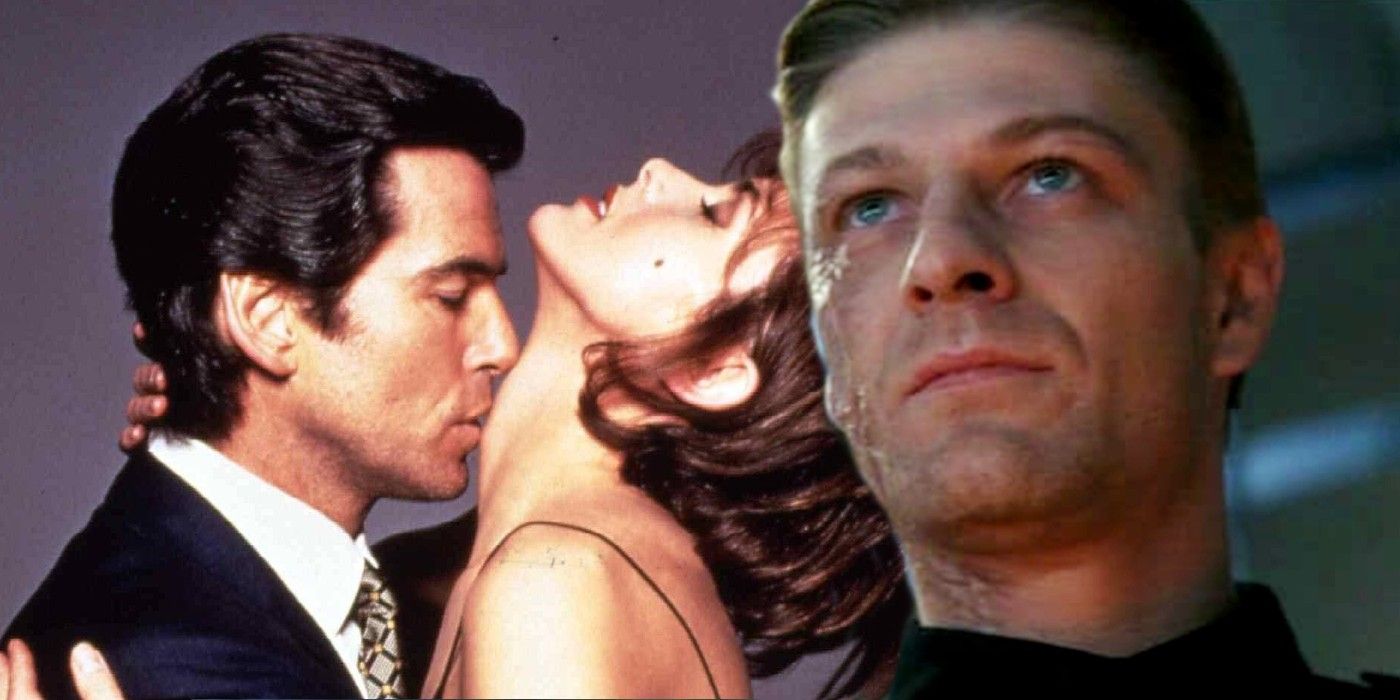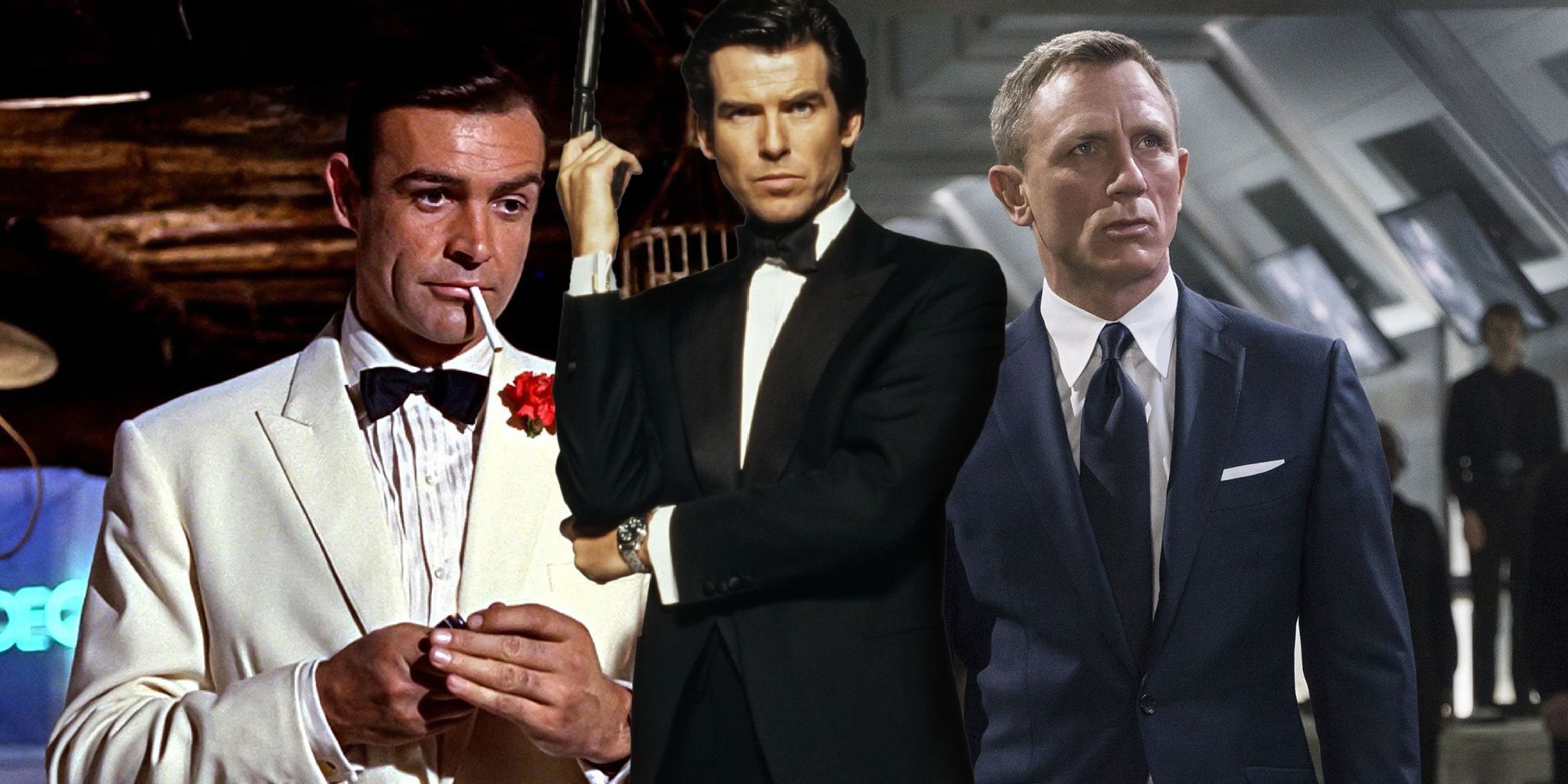Classic James Bond movie Goldeneye hinted at something every 007 movie typically gets wrong about Hollywood's most famous spy. And while the first Piers Brosnan Bond movie was designed to be the start of a lighter era than the one led by Timothy Dalton's Bond, it's a surprisingly dark element that speaks to the book version of 007 far more than his big-screen adaptations. Despite Bond's strange enthusiasm for killing in the movies, Goldeneye is the only release to really hint at Bond's ghosts.
In the movies, James Bond's license to kill has often been used as an excuse not only to rack up high body counts but also - at times - to drop just as many murderous quips. The so-called Bond one-liner - or the killer quip - invariably references how a villain met their end, seeming to add a strangely glib air to Bond's views on death. It actually got to the point in the franchise that it felt some characters would be killed simply to allow for another trademark pun. Even Goldeneye includes one such moment when Bond despatches Xenia Onatopp, the assassin who killed targets between her thighs, and quips that "she always did enjoy a good squeeze."
That moment is a betrayal of another key part in the movie, however, as Goldeneye's iconic Bond villain Alec Trevelyan actually challenges Bond on his murderous history and the hint that his victims (and those he failed to save) haunt him. Well before Daniel Craig's Bond went into the spy's psychological state as a serious plot point, Trevelyan hinted that a lot of Bond's more frivolous behavior is a response to PTSD caused by his work. That much fits considerably better with the image of Bond from the books and it's something the movies have never properly dealt with.
In the wake of the reboot of Casino Royale, Daniel Craig's Bond does get psychological, but the key for him is that his mental state is often linked most to his ability to do his job or the implied trauma of his life before he became a 00 agent. In Goldeneye, the hint in Trevelyan's challenge to Bond is of a different nature because he suggests Bond's lifestyle is a direct response to his PTSD: "I might as well ask you if all those vodka martinis ever silence the screams of all the men you've killed... or if you find forgiveness in the arms of all those willing women for all the dead ones you failed to protect." This is crucial because it's not an empty accusation: Trevelyan knows Bond and knows what his job takes. If anyone is in a position to make that accusation and have it mean something, it's the former 006.
The question here is whether Bond regrets killing and whether those he killed stayed with him, which the books definitely hint at. In the opening chapter of Goldfinger, Bond is seen drinking and ruminating on life and death. In the passage, Ian Fleming says that James Bond "never liked" killing and saw it as part of his job as "it was his duty to be as cool about death as a surgeon. If it happened, it happened." But that isn't entirely a dismissal, because he also says that "Regret was unprofessional - worse, it was death-watch beetle in the soul." The suggestion here is that Bond actively sought to suppress how he felt because of the perception to his job. To regret was to invite damnation, one way or another.
That conflict is never addressed in Bond movies other than that small hint in Goldeneye, and they are poorer for it. In Casino Royale, when asked by Vesper Lynd if "killing all those people" bothers him, Bond says "Well I wouldn't be very good at my job if it did." Combining that with Bond's killer quips and there is a major contradiction between the character and creator Ian Fleming's own fascination with death. Bond, remember, was created off the back of World War II, and ignoring his moral turmoil over killing and not remotely suggesting that his behavior around missions is designed to distract from his conflict, is a missing piece of Bond's jigsaw. In the movies, Bond is an assassin first and a spy second, which is an inversion of his 007's book origin, and that completely betrayed an important part of the character. Goldeneye may not have explored it enough, but Trevelyan's accusation comes as close as anything to understanding that key element.



